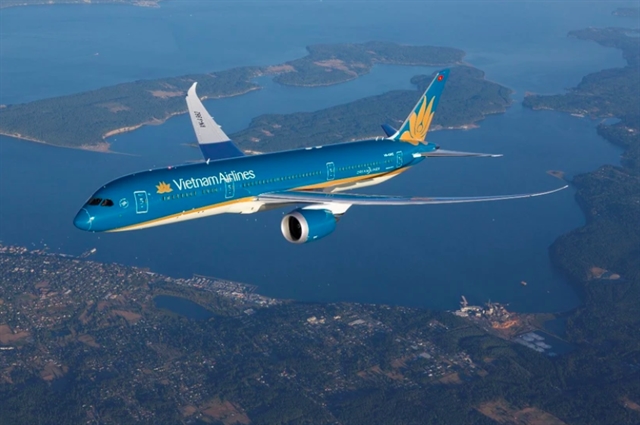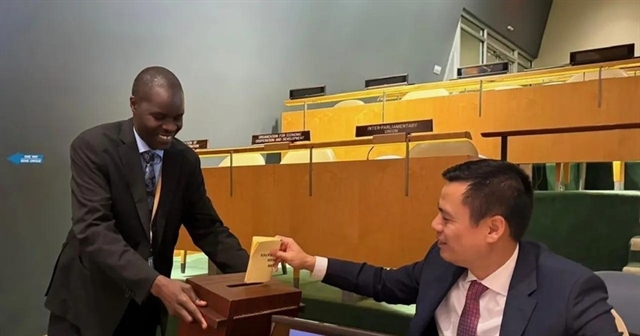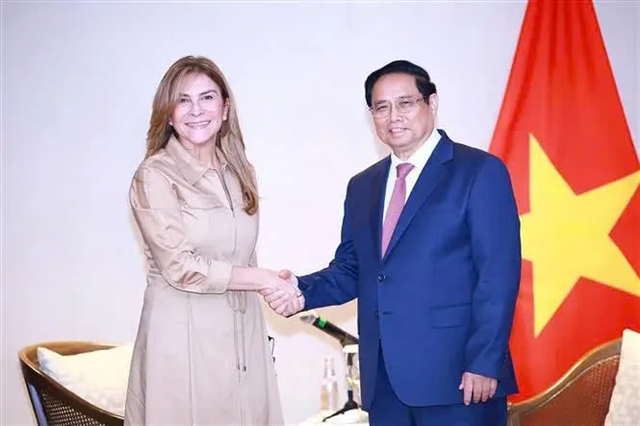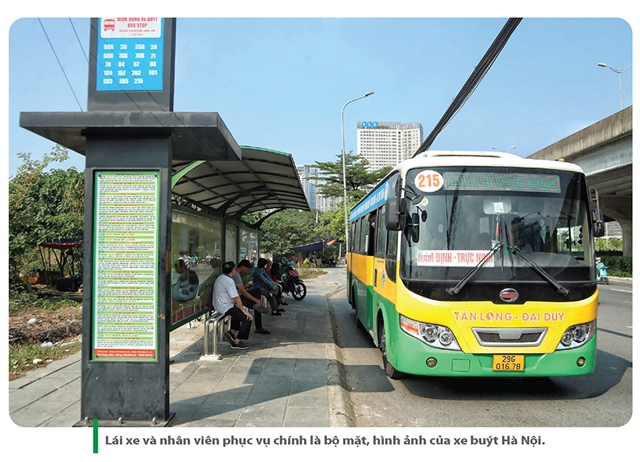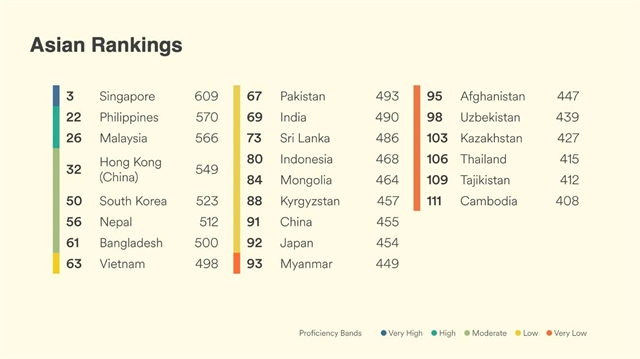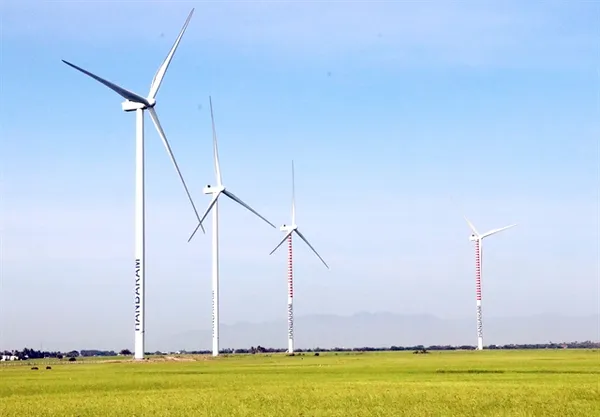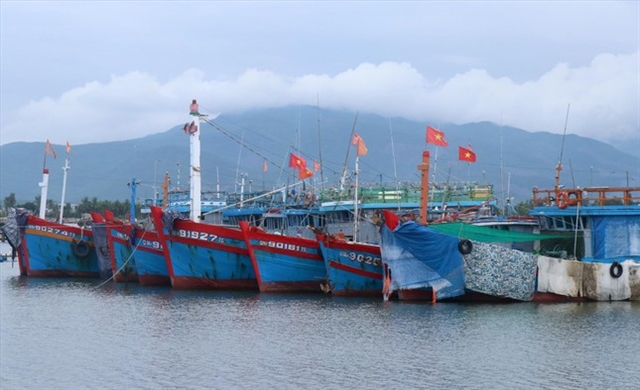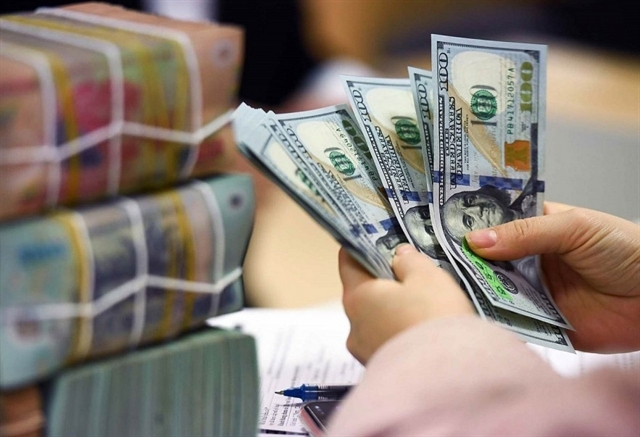 Society
Society

While the East Sea (South China Sea) situation remains uncertain, nations should build “strategic trust” to maintain peace, stability and development in the region, a Vietnamese official told an international conference held in HCM City yesterday.
 |
| Some 200 senior officials, business executives, experts, academics and diplomats are participating in the ninth International Conference on the East Sea which opened in HCM City yesterday. VNS Photo Bồ Xuân Hiệp |
HCM CITY — While the East Sea (South China Sea) situation remains uncertain, nations should build “strategic trust” to maintain peace, stability and development in the region, a Vietnamese official told an international conference held in HCM City yesterday.
Nearly 200 senior officials, business executives, experts, academics and diplomats are participating in the ninth International Conference on the East Sea.
Assoc Prof Dr Nguyễn Vũ Tùng, director of the Diplomatic Academy of Việt Nam, said the East Sea issue remains “one of the most difficult and unpredictable questions for international academics and scholars.”
Since the decision of the Arbitral Tribunal, the East Sea situation has seen positive changes, but in the long run there is still fear of “disorder and conflict,” he said.
This is mainly due to the fact that “international law is not fully respected” and nations in the region lack “strategic trust,” he said.
“The role of the East Sea in the security of the region will continue to grow.”
He reiterated that sovereignty disputes in the East Sea should be addressed through peaceful means in accordance with international law, particularly the 1982 UN Convention on the Law of the Sea (UNCLOS) and the Declaration on the Conduct of Parties in the East Sea (DOC).
He called on participants to continue to develop new proposals and contribute to ensuring peace and stability in the East Sea.
“I hope the conference would put forth initiatives to help concerned Governments co-ordinate with each other to improve security and common development in the East Sea.”
Speakers said as the East Sea becomes a theatre for big power rivalry, there is a need to explore the strategic policies of related powers and relations between them.
It is worth investigating what factors are driving big powers’ maritime strategies and how they have perceived one another’s actions, they said.
In view of rising tensions in the East Sea, it is important to study how ASEAN has handled the maritime affairs and how the East Sea politics affected its claim to centrality in the politics of Asia and the Pacific, they said.
Judge Vladimir Golitsyn, president of the International Tribunal for the Law of the Sea, said: “As we consider measures to maintain peace and stability in the South China Sea (East Sea), the role of international judicial institutions should not be underestimated.
“However, recourse to international judicial institutions for the settlement of maritime disputes faces certain challenges emanating both from states and from judicial institutions themselves.
“The contribution of international judicial institutions to peace and stability is dependent on the position taken by the various actors within the system.”
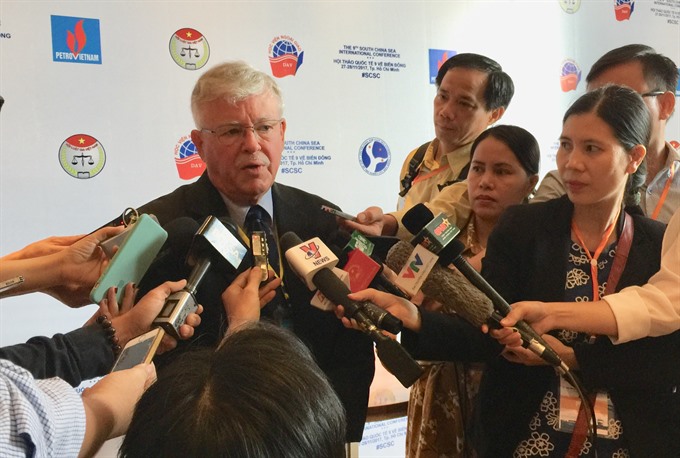 |
| Prof Carlyle Thayer from the UNSW Canberra at the Australian Defence Force Academy, speaks on the sidelines with local and international reporters at the ninth International Conference on the East Sea. VNS Photo Bồ Xuân Hiệp |
There are challenges facing international judicial institutions, including the tribunal, as they strive to fulfill their functions and bring about a peaceful settlement of maritime disputes, he said.
“There are three emerging global trends, which are, in my personal view, somewhat troubling.
“First, there is the issue of use of international judicial proceedings by states for political purposes.
“There have been examples of states having recourse to international dispute settlement mechanisms where the aim is not the immediate settlement of a dispute by means of judicial decision.”
In such cases, an eventual judicial award is viewed as just one tool among others, to be used in order eventually to achieve a favourable outcome through other means, he said.
“Second, from the perspective of the institutions themselves, I believe there is a risk that international judicial institutions may at times lose sight of their role as mechanisms to facilitate the settlement of disputes.”
Other challenges are posed by the existence of multiple international judicial institutions, he noted.
Speaking on the sidelines of the meeting, Prof Carlyle Thayer of the UNSW Canberra at the Australian Defence Force Academy, said conferences like this spread knowledge of international laws to the wider international community.
“They’ve exposed the fact that China, like other major powers, is sometimes refusing to comply. So we now know what their limitations are on international laws yet the major outside maritime powers say the decision is binding in law and they will adhere to it.
“You’re seeing freedom of navigation operation being conducted in the South China Sea saying China cannot lay claim to maritime space to which it’s not entitled. So it’s not a solution in law that we hope for but China has suffered a damage to its reputation and China has internally had to go back and review why they got it so wrong.
“The pressure is still on China to eventually respond somehow to the international community.”
There is a long-term future and an intermediate future, and at the moment the intermediate future is on ASEAN-China’s commencement of negotiations on a legally binding Code of Conduct, he said.
In the long term, there would be some elements of co-operation and some elements of confrontation between China and the US, he said.
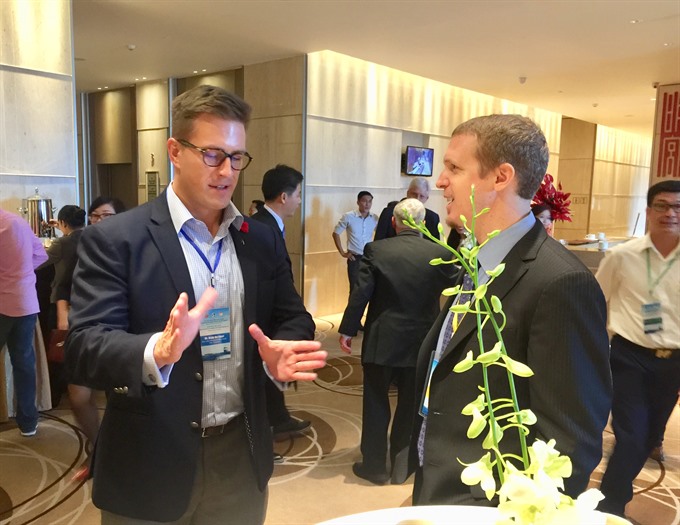 |
| Speakers talk during the break at the ninth International Conference on the East Sea which ended today in HCM City. VNS Photo Bồ Xuân Hiệp |
Colin Willett, deputy assistant secretary for strategy and multilateral affairs at the US State Department, said: “The situation in the South China Sea (East Sea) at the moment seems to be relatively stable and calm. I still have great concern about what the intentions of the various parties are.
“As best as I can tell the Trump administration’s policies are largely consistent with previous administrations in the sense they would like to see peaceful settlement of disputes.”
International law is one of the aspects the US and Việt Nam can work together with respect to the South China Sea (East Sea) issue, she told Việt Nam News.
“We’ve seen some co-operation on Coast Guard co-operation and others. I would also like to see Việt Nam and other governments in the region and the US co-operate on some of the environmental issues.”
Today the conference will continue to discuss sources of conflict and areas for co-operation, legal dimensions in the East Sea, sustainable development and co-operation initiatives, and the substance and process of a Code of Conduct.
The conference titled Co-operation for Regional Security and Development is being organised by the Diplomatic Academy of Việt Nam, the Foundation for East Sea Studies and the Việt Nam Lawyers Association.
It aims to assess the recent developments in the East Sea as well as their repercussions while discussing possibilities for further co-operation in the region.
It also aims to promote understanding and co-operation in the East Sea in the spirit of the principles of international law. — VNS

